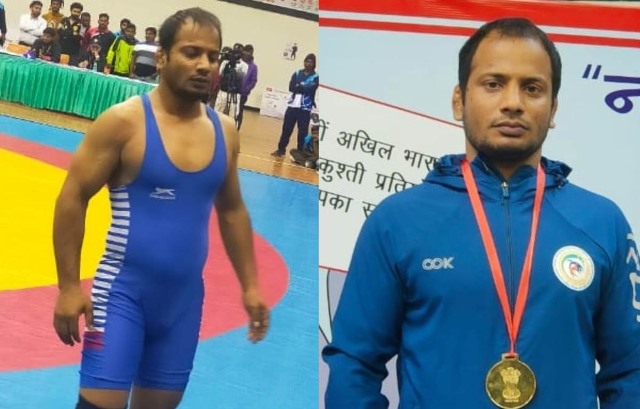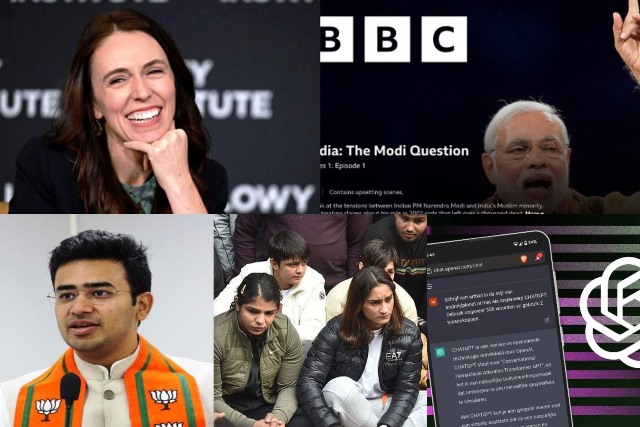Jacinda Ardern and the fine art of exiting office
The MP, former minister and Congress Party leader, Jairam Ramesh, who will turn 70 next year, posted an interesting tweet on his timeline the other day. News had broken about New Zealand’s prime minister Jacinda Ardern, 42, who had announced that she was stepping down from her post as the country’s leader on account of what can be described as burnout. Announcing her decision, Ardern had said: “I believe that leading a country is the most privileged job anyone could ever have, but also one of the more challenging. You cannot and should not do it unless you have a full tank plus a bit in reserve for those unexpected challenges.”
Ramesh’s tweet lauded that decision and said: “Legendary cricket commentator, Vijay Merchant once said about retiring at the peak of his career: Go when people ask why is he going instead of why isn’t he going. Kiwi PM, Jacinda Ardern has just said she is quitting following Merchant’s maxim. Indian politics needs more like her.” Great point, that, about Indian politics. The thing, however, is that in his own party, the recently elected president, Mallikarjun Kharge is 80; and although she has stepped down from the president’s position, Sonia Gandhi who continues to be the real supremo of the party is 76 and keeps indifferent health. What’s more, her son, Rahul, who enjoys the privilege of being a sort of on-and-off leader of the party is 52 and is considered to be young and still evolving.
But then that is the story of Indian politics. India is a young country but its politicians are old, many of them dodderingly so. In 2022, the median age of an Indian was 28.7 years, compared to 38.4 for China and 48.6 for Japan. Yet, even though 65% of Indians are below the age of 35, the average age of its MPs has been over 50 for decades. And, typically, the so-called “young” nation’s leaders have been pretty old. Take, Prime Minister Narendra Modi. Next September, he will turn 73. And, although the average age of his council of ministers has dropped from 61 to 58, most of his key ministerial colleagues are 60-plus. Contrast that with the fact that government officers in India have to retire at 58 or 60; Supreme Court judges at 65; and high court judges at 62.
Let’s go back to New Zealand. Ardern, who has indicated that burnout is the main reason she is hanging up her boots has, since she assumed office in 2017, handled several big challenges (albeit in a small country with a population of around 5 million) including a terror attack, the global pandemic, a volcanic explosion and so on. She also had a daughter during her term and created ripples when she brought her to the United Nations during an official visit. Yet, at 42, she has decided that it is time to call it quits.
Calling it quits is, however, not in the DNA of most Indian political leaders and even bureaucrats. Most of them are unable to reconcile to a life without the trappings of power. That is why we see fair numbers of bureaucrats jockeying into politics when their official bureaucratic tenures reach the end. Many, with the right sycophantic credentials, end up as governors of states or head commissions or secure similar sinecures where the perks and status that they enjoyed during their earlier careers can still be somewhat intact.
So Ramesh (the tweeting politician mentioned before) is quite right actually. Indian politics needs more people like Ardern who don’t cling on to power after their fizz has turned flat. But then the onus for doing so is with people like him and his ilk.
New BBC docu on Modi raises hackles
A new two-part BBC documentary, titled ‘India: The Modi Question’, has, among other things, shows that a hitherto secret British government investigation into the 2002 Gujarat riots, which left over 1,000 people dead, found that Prime Minister Narendra Modi who was then the chief minister of Gujarat was “directly responsible” for the communal violence that had ravaged the state. The investigation, according to the BBC documentary, also found that the extent of the violence was much greater than what was reported and that the motive behind the riots was to purge Muslims.
While in the years after the riots rocked Gujarat, Indian courts have dismissed allegations against Modi and his then government in Gujarat, the shadow of the Gujarat riots and widespread violence against Muslims during that period has been haunting him and his former colleagues, notably the Union home minister Amit Shah who was also Gujarat’s home minister in 2002.
The BBC documentary was briefly streamed on YouTube but later yanked from the platform. Now it can be watched only on the BBC iPlayer that works within the UK and not outside that demarcated geography. Predictably, the documentary has been divisive. The official reaction of the Indian government has been to label it as propaganda that smacks of “a colonial mindset” and an anti-India stance by the British prime minister Rishi Sunak in order to prove his British loyalty. Liberal and left-leaning circles, however, have lauded the BBC for its investigative efforts to get to the truth behind the riots and the involvement of Modi and his government in Gujarat then. Meanwhile, in case you are wondering, much of India’s mainstream media have sided with the government’s view on the documentary.
Perhaps older politicians are better for India
Lakya Suryanarayana Tejasvi Surya, 32, is an Indian politician, a member of the Rashtriya Swayamsevak Sangh, a Hindu nationalist paramilitary volunteer organisation, and a BJP MP in Parliament. He is also famously the man who opened the emergency exit door of an airplane while on board. Luckily, it did not lead to a disaster. Surya is believed to have said that his hand accidentally touched the handle of the emergency door and it opened.
To anyone who has flown on an aircraft, the emergency exit door usually is not touch sensitive. Also, opening it when a plane is not in an emergency situation is unlawful. Surya’s party colleague and aviation minister Jyotiraditya Scindia, however, made light of what could have been a disastrous thing by saying: “It’s important to look at the facts. The door was opened by him by mistake when the flight was on the ground and after all checks, the flight was allowed to take off. He also apologised for the mistake.”
As far as we know, Surya has not been censured or has had to pay for his “mistake”. Life goes on as normal for him as it usually does for most privileged members of India’s power elite when they break the law. But, (and see the segment on Jacinda Ardern above) perhaps India needs older, greying and wiser politicians rather than whippersnappers whose hands can wander when they are sitting in an aircraft.
Women wrestlers accuse coaches of sexual harassment
Brij Bhushan Sharan Singh, 66, is a six-time MP and head of the Wrestling Federation of India. He has also been recently accused of sexually harassing women wrestlers for many years. Women and men wrestlers who have been staging protests have alleged that Singh as well as coaches at the national camp for wrestling in Lucknow have been exploiting women wrestlers systematically.
Singh and others have, for the moment, denied the allegations but as investigations get going the truth will, hopefully, emerge. For a long time women in Indian sports have been discriminated against and this is not the first time that allegations of exploitation have been made. However, it is the first major concerted protest against people in power in India’s sports arena. One hopes that others will be inspired by such protests to open up about similar instances in other sports.
Google, ChatGPT and the imminent battle over AI-powered bots
I asked ChatGPT, a chat bot developed by OpenAI, an American artificial intelligence lab, which has become a big craze around the world: “What is Google Deep Learning?” In seconds, the bot replied: “Google Deep Learning refers to the various deep learning technologies and services developed by Google, such as TensorFlow and the Google Brain team. These technologies and services are used for a wide range of applications, including image and speech recognition, natural language processing, and predictive analytics. Google has also developed various deep learning models and algorithms, such as the Google Neural Machine Translation system and the Google DeepMind AlphaGo program, which have achieved significant breakthroughs in their respective fields.”
The reason why I asked ChatGPT that question was because of the imminent competition that it might face. Even as ChatGPT becomes a rage (it can answer any question as long as it pertains to pre-2021; it can write essays; create lyrics for songs; and almost everything that a human can do), Google, which has a subsidiary called DeepMind, is believed to be working on a ChatGPT killer that it claims to be better, faster and safer than ChatGPT. Must ask ChatGPT what it thinks of that!
Read more: http://13.232.95.176/

